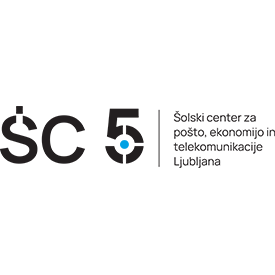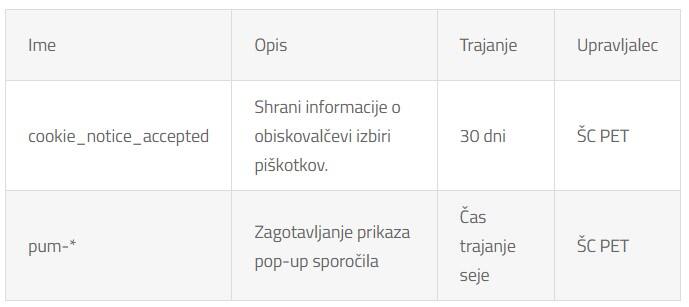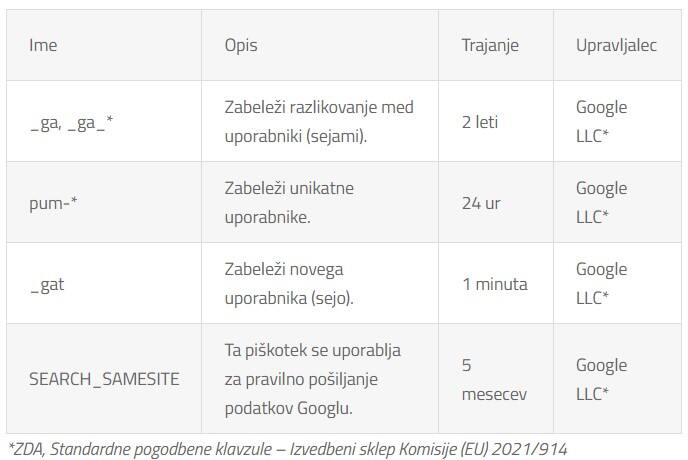Programme – Telecommunications (TK)
1. Name of qualification: ENGINEER (Abbreviation: inž. ekt)
The syllabus enables students to acquire:
a.) Generic competences:
- Efficient communication and use of specific terminology in native and foreign language,
Knowledge of basic business etiquette, - Use of ICT know-how and suitable program software,
- Acquisition of data from technical documentation,
- Getting familiar with regulations on project work and quality assurance,
- Staying on track with novelties in the area of work,
- Systematically introducing changes to achieve new goals,
- Reading and analysing financial statements and other reports,
- Investigating business results,
- Preparing and taking business decisions,
- Protecting business assets against unauthorised persons,
- Performing appropriate precautions in case of work accidents,
- Responsible planning and follow-up procedures regarding safety at work, fire prevention, as well as environment protection.
b.) Job-specific competences:
- Good overview of services in the area of electronic communications,
- Giving advice to customers about suitable choice of communication services,
- Selecting and planning appropriate communication services in the given circumstances,
- Projecting and constructing telecommunication networks,
- Planning, projecting and documenting telecom networks and services,
- Building and installing telecom infrastructure,
- Leading, organizing and controlling projects,
- Administration of telecomunication systems,
- Management and mainteinance of electronic communication systems and devices,
- Troubleshooting and repair of electronic communication systems and devices,
- Planning and introducing procedures of quality control and safety of TC systems and networks,
- Record-keeping, preparing reports, and archiving papers and documentation,
- Marketing of telecommunication services and devices.
2. Syllabus
| 1st year MODULES/SUBJECTS/COMPONENTS | Mandatory /elective/ | Number of contact hours | ECTS /credits/ |
| M 1 – BUSINESS COMMUNICATION | Mandatory | 228 | |
| Business communication and management | 84 | 6 | |
| Communication in a foreign language | 84 | 6 | |
| Information and communication tehnologies | 60 | 4 | |
| Practical training | (90) | 3 | |
| M 2 – STANDARDS AND REGULATIONS | Mandatory | 106 | |
| Safety at work, fire safety and environmental protection | 46 | 4 | |
| Project design and documenting | 60 | 5 | |
| Practical training | (120) | 4 | |
| M 3 – BASICS OF TELECOMMUNICATIONS | Mandatory | 266 | |
| Fundamentals of telecommunication systems | 92 | 8 | |
| Telecommunication networks I | 82 | 6 | |
| Transmission and swittching | 92 | 8 | |
| Practical training | Mandatory | (190) | 6 |
| Practical training (PRI – 1) | Mandatory | 400 | |
| M (1-3) – TOTAL | 1000 | 60 | |
| 2nd YEAR MODULES/SUBJECTS/COMPONENTS | |||
| M 4 – ELECTRONICS COMMUNICATION SYSTEMS AND SERVICES | Mandatory | 264 | |
| Telecommunication networks II | 84 | 6 | |
| Mobile and satellite telecommunications | 96 | 7 | |
| Electronics communication services | 84 | 6 | |
| Practical training | Mandatory | (120) | 4 |
| M 5 – BUSINESS ECONOMICS | Mandatory | 84 | |
| Bussines economics | 84 | 6 | |
| Practical training | (70) | 2 | |
| M 6 – MULTIMEDIA SYSTEMS Multimedia tehnologies Audio/video systems Practical training | Elective 1 | 176 96 80 (210) | 7 5 7 |
| M 7 – ELECTRONICS COMMUNICATION NETWORKS AND DEVICES Broadbend networks Terminal devices Practical training | Elective 2 | 176 96 80 (210) | 7 5 7 |
| M 8 – MARKETING AND SALES Service marketing Sales Practical training | Elective 3 | 176 80 96 (210) | 5 7 7 |
| Fre elective subject | Elective | (76) | 5 |
| Practical training (PRI–2) MULTIMEDIA ELECTRONIC COM. NETWORKS AND DEVICES MARKETING AND SALES | Mandatory | 400 | |
| Diploma Thesis | Mandatory | / | 5 |
| TOTAL | / | 1000 | 60 |
In the second year students can choose one of the following modules:
MULTIMETIA SYSTEMS: M 6 (within 19 credits
ELECTRONIC COMMUNICATION NETWORKS AND DEVICES: M 7 (within 19 credits)
MARKETING AND SALES: M 8 (within 19 credits)
3. Enrolment requirements
It is possible to enrol if you have successfully passed:
General Matura Examination, Vocational Matura Examination, (or Final Exam, or a Diploma before year 2002), grammar school or any other programme to have acquired secondary level of education.
If you have obtained a Master Qualification Exam, or a Managerial Exam, or a Superintendent Exam, and you have three years of work experience, after passing the test in Slovene, a foreign language and maths within the range prescribed for the Matura examination.
4. Enrolment restrictions:
If the number of candidates who apply exceeds the number of enrolment places, the College, in agreement with the Minister of Education, will make a decision about enrolment restrictions; Candidates with completed secondary education will be listed by the number of the acquired points. The following will be taken into consideration:
The grades obtained at the General or Vocational Matura examination, or Final Exam and The grades of performance in the last two years of secondary school.
More detailed information about enrolment, restrictions and selection standards can be found in the Enrolment rules and regulations for vocational colleges issued every January.
5. Progression:
REGULAR STUDY
Students can progress into the 2nd year if they have successfully completed all their study obligations, finished practical training, and passed the exams with the minimum scope of 45 credits.
PART-TIME STUDY
There is no repetition owing to the specific design of study.
6. Repetition of a study year:
REGULAR STUDY
Students are allowed to repeat a study year if they have completed practical training and their study obligations of the same year with the minimum score of 20 credits.
PART-TIME STUDY
There is no repetition owing to the specific design of study.
7. Duration of study
REGULAR STUDY– 2 years
PART-TIME STUDY – up to 3 years
COLLEGE RECOMMENDATION:
Enrolment is recommended to students who have completed a secondary school programme of electrotechnics, a grammar school, or a technical grammar school, or a mechanical engineering programme.
REGULAR STUDY and PART-TIME STUDY( students who are not employed on a regular basis)
Students have to make a contract with a company about their practical training. They can find a suitable company on their own or by assistance of the college.
PART-TIME STUDY (students with regular employment)
Students who are employed and performing work in the area associated with the nature of study, and proving that with a declaration of their employer, can be exempt from practical training. They can show their practical skills by way of products, seminary and project work, presentations from the subjects prescribed by the syllabus.
Students who are regularly employed, but do not work in the area associated with nature of their study, have to do two seminary works from the subject of their choice for the 1st and 2nd year separately, in addition to other study obligations.




